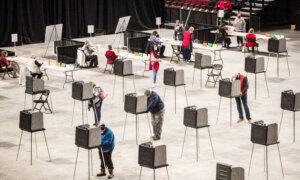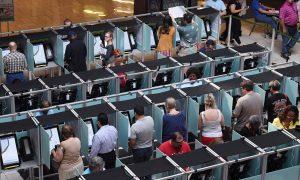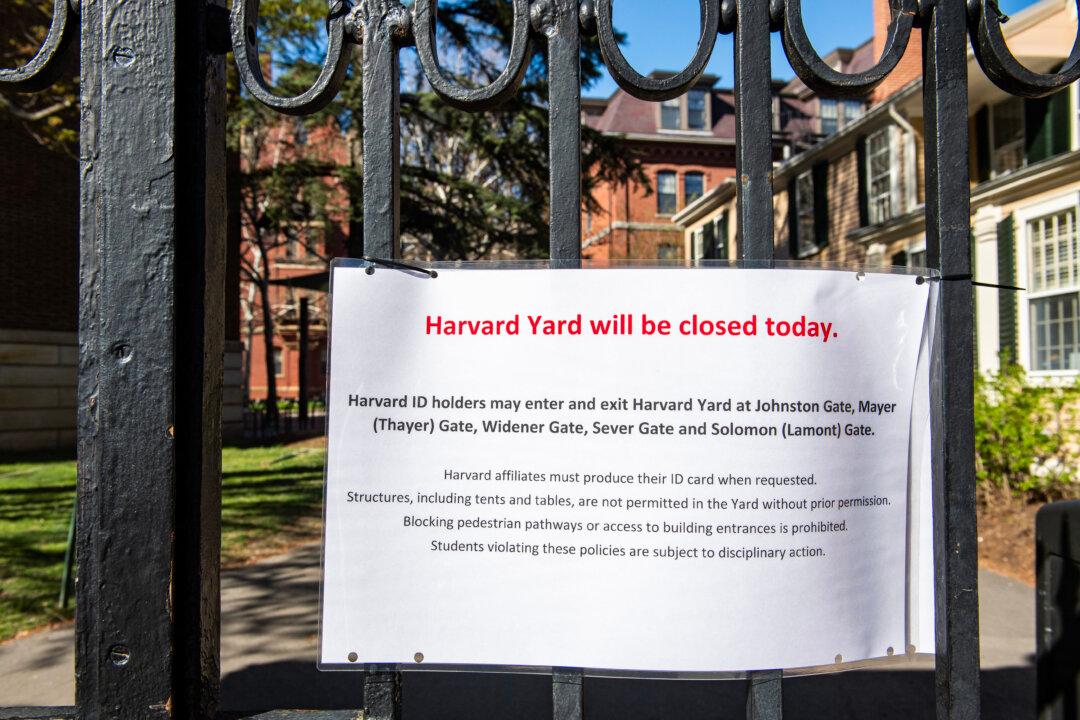Maine Gov. Janet Mills said she will allow a narrowly passed bill that would award the state’s four electoral college votes to go toward the winner of the National Popular Vote to become law, as opposed to the current system where the votes go either to the winner of the state’s popular vote or according to the results in each of congressional district—as is the case in Maine.
A group known as the National Popular Vote (NPV) is behind a push for states to enter into a “National Popular Vote Interstate Compact” that would hand the presidency to whoever gets the greatest number of popular votes at the national level.
Rather than abolishing the Electoral College, this would require presidential electors in the states and the District of Columbia to vote for the candidate who gets the most popular votes overall, which would see the outcome of the election decided by the views of those living in major population centers like Los Angeles and Houston instead of by entire swing states.
Maine’s legislation passed the State House of Representatives on April 2 by a slim 73 to 72 margin. It cleared the Senate the following day by an 18 to 12 vote.
She opted to give her approval to the bill without a signature. Maine’s Constitution gives governors three options to legislation that arrives at their desk: to sign a bill into law, veto it, or allow it to become law without their signature.
Supporters of the legislation argue that electing a president based on who has more support among voters in a state but not nationwide doesn’t make sense, and that the new system under the “National Popular Vote Interstate Compact” would make everyone’s vote count the same, no matter where they live.
Critics of the compact argue that the legislation is a shortcut to bypass the U.S. Constitution because such a change in the way the president is elected should involve a constitutional amendment. A constitutional amendment must be passed by a two-thirds majority in the U.S. Congress and ratified by three-quarters of the states.
They also warn it would ultimately stifle the voices of voters in smaller, rural states like Maine.
According to Ms. Mills, while she recognizes concerns about presidential candidates spending less time in smaller swing states like Maine, she thinks it’s “possible candidates will spend more time in every state when every vote counts equally”—despite the vast population differences between regions that would determine areas of concentrated voting power.
“I struggle to reconcile the fact that a candidate who has fewer actual votes than their opponent can still become President of the United States,” she said.
“Absent a ranked-choice voting circumstance, it seems to me that the person who wins the most votes should become the President. To do otherwise seemingly runs counter to the democratic foundations of our country,” Ms. Mills added.
Currently, under the electoral college system, delegates are assigned to states based on how residents are represented in Congress. States with bigger populations get more representatives in the House. But each state—no matter its population—also gets two senators to represent its interests. Electoral college delegates for most states—except Maine—have voted under a state-wide “winner-takes-all” system, where they put their vote behind the presidential candidate who wins the popular votes in their state.
The National Popular Vote Interstate Compact would change this to a “winner-takes-all” system based on the national popular vote, which needs the support of 270 delegates for participating states to determine who to send straight to the White House.
Currently, the pact’s members collectively control 205 electoral votes—65 votes short of what it needs to be effective.
Ms. Mills said that the bill that passed the Legislature in Maine is not irreversible.
“Still, recognizing that there is merit to both sides of the argument and recognizing that this measure has been the subject of public discussion several times before in Maine, I would like this important nationwide debate to continue. And so I will allow this bill to become law without my signature,” she said.
Maine has now joined 15 other states and the District of Columbia to adopt the compact. California, Colorado, Connecticut, Delaware, Hawaii, Illinois, Maryland, Massachusetts, New Jersey, New Mexico, New York, Oregon, Rhode Island, Vermont, and Washington have all passed similar legislation.







